Classic album: Calibre on Second Sun
2005 was a very good year indeed for this prolific drum 'n' bass producer…
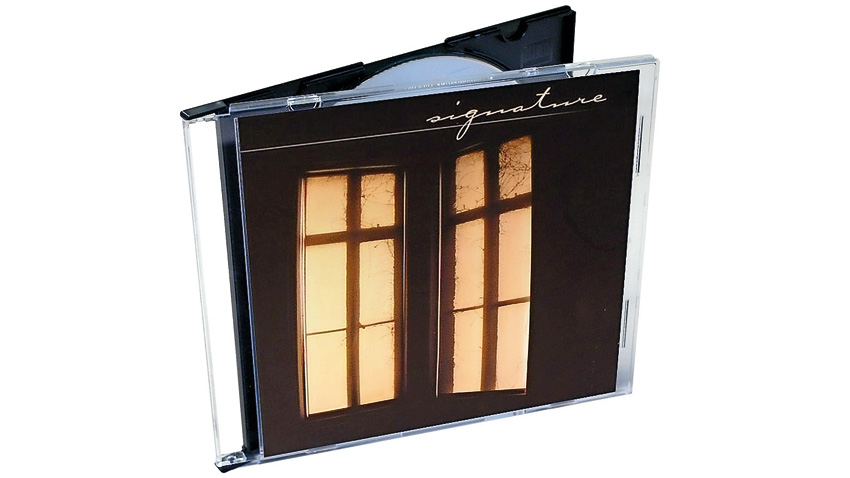
Calibre's mighty wind has blown through the drum 'n' bass scene ever since his first tentative forays into production in 1998. As a trained musician and student of the genre, he quickly developed a unique sound that was warm, orchestral and hypnotic. Attracting the attention of tastemakers like Fabio, the Belfast-born producer and DJ was encouraged to work harder and faster on this liquid funk, resulting in what would become his signature sound. By the time his sophomore album, Second Sun, came into orbit, Calibre was recognised as a shining star of the scene.
One of the few who had realised the potential of the album format, he crafted dubbed out house grooves, jazzier downtempo numbers, and introspective vocal-led tracks amongst the more trad tempos the largely dancefloor single-based genre was known for.
The album is awash with high points, from the anthemic Drop It Down, to the more reflective MC tracks like Timeout and Blink Of An Eye. Most producers would labour over such delicately balanced arrangements for weeks, but the fact that Calibre can knock such masterworks out in a matter of hours tells you how effortlessly and naturally his music comes to him.
"Working quickly gives me a unique and personal sound," says Calibre. "It also helps that I like to sample my own playing. Any type of instrument I could get my hands on, I'd record it live. Maybe quite badly, but I still did it. It helped create my own sound. If you can play an instrument, and you can play it with a little bit of passion and a little bit of love, it'll give you something back."
In the ten years that have passed (Second Sun dropped in October, 2005) Calibre has written more material than quite possibly anyone else in the scene, and this year shows no sign of him slowing up. Besides the usual wealth of remixes in the pipeline, and a forthcoming techno album on Craig Richards' label, a fourth Shelflife compilation of unreleased Calibre material will be dropping on his own Signature Records label. But for now, let's rewind the story, as the man himself takes us, track by track, through Second Sun.
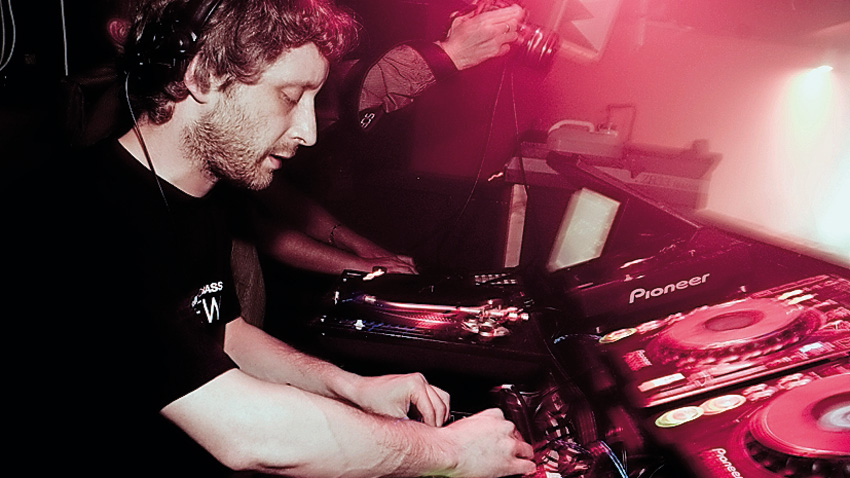
Bullets
"This is a favourite. I still play it. It was an instrumental first and going to be on a Mist:i:cal album that I was writing with Marcus Intalex and ST Files, but it ended up here.
"Diane Charlemagne [vocalist on Goldie's Inner City Life] wrote some lyrics for me and I cut them up, probably in a way she didn't want [laughs].
"It was really easy to put together. It was one of those ones. I could have put it together a bunch of ways and it would have still sounded great. It's the one tune that I can still play today and I still feel the same way about it."
Get the MusicRadar Newsletter
Want all the hottest music and gear news, reviews, deals, features and more, direct to your inbox? Sign up here.
Second Sun
"Every time I think of Second Sun I think about the orchestral samples. I would go for the obscure things, weird versions, and even some of the duffers. It was the stuff that you'd never think to listen to. That's where I'd get most of my samples from, just hidden within this horrible Classical music.
"I like to mess with the samples, too. If I put something in a tune without too much manipulation, I don't feel right about it. It feels a bit too safe."
All The While
"This features Steve Spacek. It was made of vocals he'd passed on to me. He's dBridge's brother, so it was easy to get that hook up with him and do this and another few tunes that we've done together [such as the excellent For You Alone from 2007 on Exit Records].
"He was part of this great vocal beat thing that was going on at the time."
Don't Watch This
"This one is down to John Tejada, and the influence he was having on me at the time. I released an EP on his label [Dominick Martin - Tell Me (Palette Recordings), from 2002]. He's this LA techno/house guy. I was releasing techno and house, and giving this bunch of material to him, and Don't Watch This was one of the tracks he didn't put out, so I did here.
"It was something that was going on a lot in drum 'n' bass at the time, with people trying deep house and stuff like that."
"It was something that was going on a lot in drum 'n' bass at the time, with people trying deep house and stuff like that."
Got A Thing
"I would bang out tracks. It was like 'boom, boom, boom'. This track, like most of them, would have been done in a couple of hours.
"The recall thing wasn't so easy back then. People would say that you had to take photographs of the desk to get the sound back to where it was from the last session, but it would never sound anything like it did before. I was always dying to get going and get on to the next thing. At that stage I would write four or five tunes a day."
Is It U
"This mixes the light with the darkness and adds a bit more curvature to things. That's how it used to be. You'd get tunes out there that were absolutely banging, but had a soul as well.
"Throughout all of this drum 'n' bass thing, I think that's something I've been trying to get. It's that mixture of some kind of toughness with a little bit of softness. A lot of that has been lost now, with the starkness.
"It's about that play and the buildup. There is no foreplay in music anymore. It's just kicking you in the fucking face. I hate that about modern music. It's got nothing about it that's subtle."
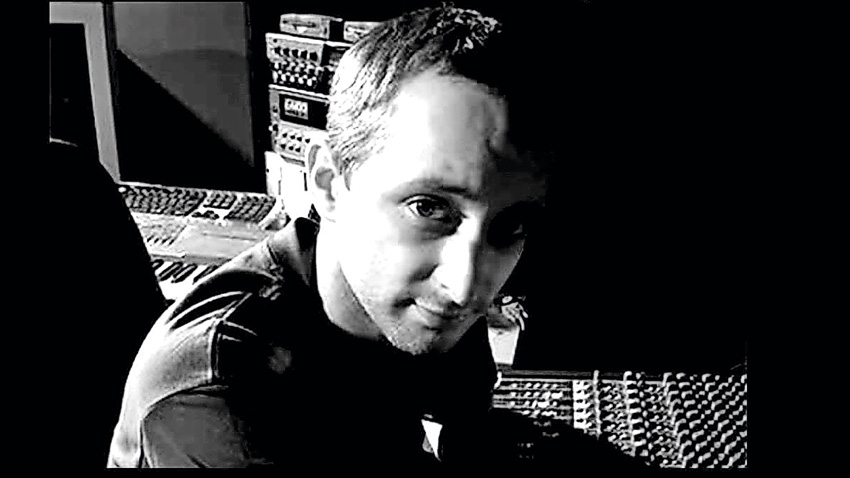
Drop It Down
"This came about because of A-Sides. He was always telling me to work with MC Fats, who's on this track. He sent me a CD of some vocals he'd done from tracks from a couple of years ago that hadn't worked. There was just this one little 'drop it down' line in there that stood out for me. I put it on this track I had, which was made up of me sampling my own playing.
"I like Drop It Down from that point because, bar the vocal and the backing beat, everything was organically made by me."
Go Back To Go Forward
"The title here is a bit of a mission statement for me. It relates to a lot of things, besides Northern Irish politics [laughs].
"For music, it's essential. You have to have some sense of the archaic and know where you come from. I love old Irish music. It has a beautiful innocence to it. It's a purist style.
"Go Back To Go Forward has that sense of removal. With good dance music you have to reduce
the musicality in it. If there's too much, it can sound too 'frolic-y' or something. It's something I always try to avoid.
"Go Back To Go Forward is a good example of that, while retaining some resonance and quality."
Blink Of An Eye
"This features Lariman. He's a guy I know from Dublin. I think he's originally from Nigeria. I met him in the Bassbin nights in Dublin. He'd stay with me for a few days and we'd work together. I loved him, and he always had this really nice weed [laughs]. It was hard to get that stuff.
"People often ask if I smoke. I'm always honest. I love to write music on it. My older brother used to look down his nose at it and be of the opinion that it just accentuates the boredom of normal life. I always said that it allows me to pass through the more boring aspects of life.
"It allows me to work on stuff that is repetitive, because this stuff is repetitive. It allows me to numb that part of it and it still leaves me hungry."
Breathing Man
"This is a little bit of a different one, this one. It's primarily one to sit at home and listen to. That was something I always wanted - to strike a balance within drum 'n' bass, having tracks that weren't just for the dancefloor. You try and go after that more transcendental effect. This is one of those.
"At the time, we were trying to save a bit of money, too, so I mastered some tracks like this to start with, and ST Files did some others. We ended up getting it mastered again anyway [laughs]. Klute was involved in the mastering then."
"People often ask if I smoke. I'm always honest. I love to write music on it. It allows me to pass through the more boring aspects of life."
Kiya
"Crow is on vocals here. I met him when he came round to put my double-glazing in [laughs]. I was working on a tune and talking to him a bit, in-between making him cups of tea. He told me he was an MC, and after a couple of days I got him to do me a vocal.
"The pitch was all over the place, and I have a natural pitch, but I found a few little magical phrases that I ended up using that really made the track. He really gave the whole thing a great sense of pressure. It's one of the tracks that I still play now."
Timeout
"Del [MC DRS] is on this. I met him in Belfast when he was touring with [LTJ] Bukem. He was in the club smoking this really nice weed. It was absolutely stinking the whole place out. I was on my own and went up to him and said, 'Can I get a chuff on that?'. He just looked at me like I'd walked up there and stuck my finger in his ear [laughs].
"He turned in some great lyrics for this track. With drum 'n' bass you can find that the vocals on
tracks get quite concentrated on the dancefloor.
"A lot of club music doesn't really require any sense of introspection and expression, in terms of communicating some sort of message. With the music that we were involved with, in this liquid funk period of time, some part of it was to give us space to do that. To give us a place to express something.
"It wasn't just music where someone would be singing about a bassline or some kind of instruction for dancing or just about a girl, you know what I mean?"
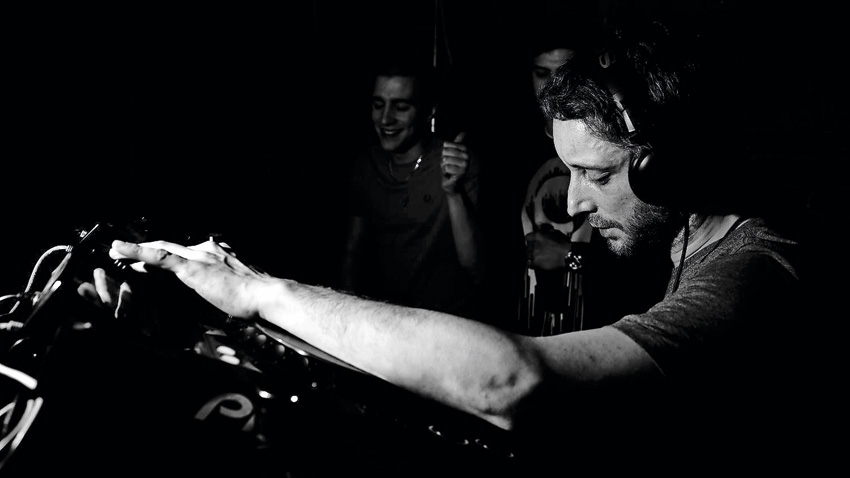
Drinnahilly
"This is named after an Irish mountain. It's the smallest one in the range, and anyone can climb up it. It kind of explains this track, which is a way of getting to the next one.
"It changes up the mood a bit. It's slower. When I make a track like this, I'm thinking about people like Photek. He was one of the few drum 'n' bass guys that could make an album and work with different styles. He had that versatility that a lot of guys don't have. It's hard to get that in drum 'n' bass. It was back then. I think it's getting better now."
These Few
"It's a pretty one, this one. More dubby house. I like this one. It was the perfect one to end on. With all the albums I've done, I like to leave with something that's genuinely emotive. I don't care if it's very
deep. I just want something that has some sense of sadness. I don't really like 'happy' music. I like something melancholic and romantic. Something that you can't quite grasp."


Future Music is the number one magazine for today's producers. Packed with technique and technology we'll help you make great new music. All-access artist interviews, in-depth gear reviews, essential production tutorials and much more. Every marvellous monthly edition features reliable reviews of the latest and greatest hardware and software technology and techniques, unparalleled advice, in-depth interviews, sensational free samples and so much more to improve the experience and outcome of your music-making.
"At first the tension was unbelievable. Johnny was really cold, Dee Dee was OK but Joey was a sweetheart": The story of the Ramones' recording of Baby I Love You
"Reggae is more freeform than the blues. But more important, reggae is for everyone": Bob Marley and the Wailers' Catch a Fire, track-by-track



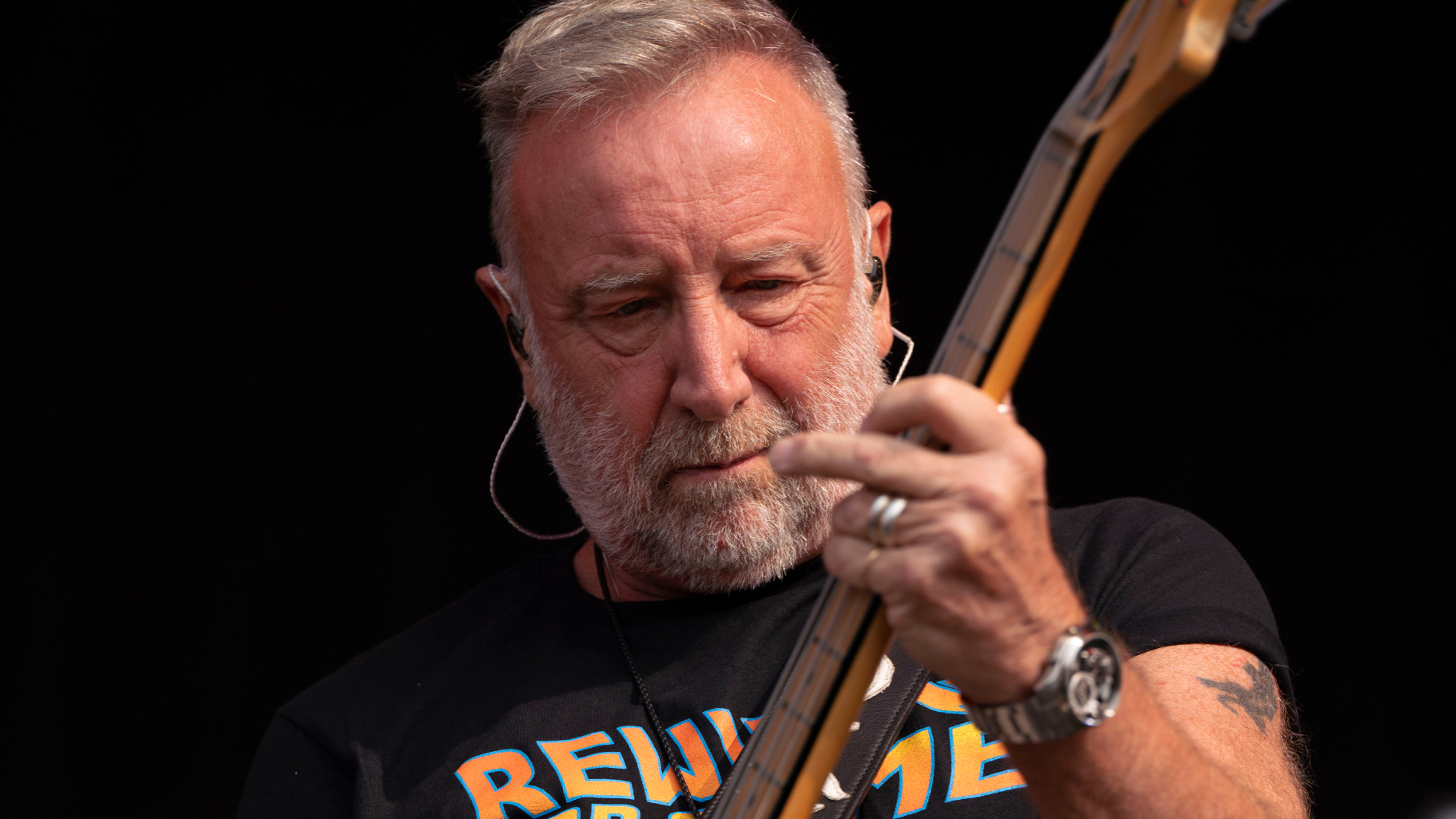
![PRS Archon Classic and Mark Tremonti MT 15 v2: the newly redesigned tube amps offer a host of new features and tones, with the Alter Bridge guitarist's new lunchbox head [right] featuring the Overdrive channel from his MT 100 head, and there's a half-power switch, too.](https://cdn.mos.cms.futurecdn.net/FD37q5pRLCQDhCpT8y94Zi.jpg)





